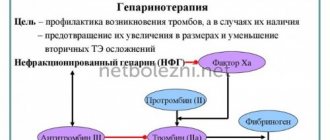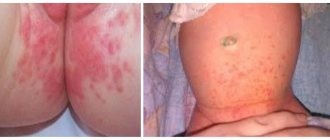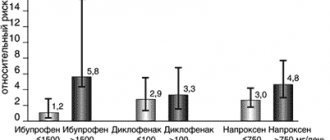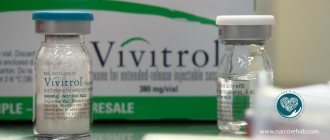Depression is one of the most common diseases. In terms of prevalence, it is second only to cardiovascular diseases. And of all those suffering from depression, no more than 20% seek qualified help.
In this article we will tell you about all the drugs used to treat depression.
All medications with antidepressant effects can be divided into several groups:
- Antidepressants.
- Normotimic drugs.
- Neuroleptics.
- Tranquilizers.
- Nootropics and metabolic agents.
- Herbal remedies.
- Amino acids.
- Psychostimulants.
Normotimic drugs
Medicines in this group have an antidepressant effect only in cases where the depressive state is caused by chronic affective diseases, such as bipolar affective disorder (BD, manic-depressive psychosis), cyclothymia, dysthymia, schizoaffective disorder. Most commonly used medications:
- Carbamazepine (finlepsin)
- Depakine chrono
- Lamotrigine (Lamictal)
- Lithium carbonate
Neuroleptics
Despite the fact that most antipsychotic drugs depress the nervous system, among them there are drugs with antidepressant effects:
- Flupenthixol (fluanxol).
It has an antidepressant effect only when administered in small doses (less than 2 mg per day).
- Aripiprazole.
Effective for depression in bipolar affective disorder and schizitypal disorders.
- Levomepromazine (tizercin).
Prescribed for endogenous depression accompanied by insomnia.
Life in the “serotonin pit”
An alternative to the monoamine theory, which from the point of view of many scientists can no longer be considered basic, is the biopsychosocial model of depression. In accordance with it, the development of the disease is influenced not only by biological, but also by psychological factors.
“A person may experience loss (grief) or severe frustration of their needs (stress). As a result, its neurochemistry also changes,” explains Danina. “But this is the so-called normal “grieving process.” Doctors talk about reactive depression only if, even after months, a person continues to experience the same unpleasant sensations, and over time his condition only gets worse.”
In some people, however, the functional characteristics of their neurons make them more susceptible to depression. Such patients do not require external circumstances to “start” the process. And their depression is not reactive, “endogenous” in nature.
In both cases, as a medical treatment, in addition to psychotherapy, doctors prescribe antidepressants, that is, drugs that can affect neurotransmitters in the brain.
There are five classes in total. Each of which affects the brain in its own way.
1. Selective serotonin reuptake inhibitors (SSRIs).
SSRI drugs increase serotonin levels. Which helps to more accurately regulate mood and gradually overcome moderate and severe depression. These drugs do their job by preventing neurons from taking up serotonin from the synaptic cleft between neurons. Due to this, neurons are able to exchange information better.
SSRIs have fewer side effects than other classes of antidepressants. For example, in case of overdose, they do not disrupt cardiac conduction and do not lead to seizures.
However, there are still side effects and they are quite serious - from increased suicidal thoughts to sexual dysfunction, drowsiness, dry mouth, dizziness and headaches.
In addition, all drugs that increase serotonin levels in the brain can cause serotonin syndrome, a situation where there is too much of the neurotransmitter.
Serotonin and signal transmission along nerve cells.
With serotonin syndrome, a person becomes overexcited, restless, suffers from sweating and increased heart rate. This is why being treated simultaneously with two antidepressants that increase serotonin levels is dangerous to life and health.
2. Selective serotonin and norepinephrine reuptake inhibitors (SNRIs).
SNRIs work in much the same way as SSRIs, but with one difference. Medicines “prohibit” neurons from absorbing not only serotonin, but also norepinephrine, a neurotransmitter that is involved in the regulation of emotions and thought processes.
And since norepinephrine works closely with serotonin and dopamine, SNRIs are believed to increase attention, focus, and improve memory.
The indications and side effects of SNRIs are very similar to SSRIs. Drugs in this class have few advantages over SSRIs, but they are better for some patients.
3. Atypical antidepressants.
This class includes drugs with different principles of action, which have only one thing in common - these drugs are not similar to SSRIs and SNRIs.
Although some drugs in this class also “prohibit” neurons from taking up serotonin, like reuptake inhibitors, some of them can affect receptors for other neurotransmitters. This makes it possible to fine-tune the sensitivity of neurons to one or another substance.
It is worth noting that the components of some atypical antidepressants - for example, bupropion - are indicated in a note to the list of psychotropic substances subject to control on the territory of the Russian Federation. And although this product has been approved by reputable international medical organizations - for example, the American Food and Drug Administration (FDA), it cannot be legally purchased in Russia.
Side effects for this class of drugs vary depending on the specific drug. For example, some atypical antidepressants make you sleepy, while others, on the contrary, invigorate you. To choose the right medicine, the doctor must take into account the specifics of the legislation, individual symptoms and the patient’s health condition.
4. Tricyclic antidepressants (TCAs).
All drugs in this class are thought to increase norepinephrine and serotonin levels in the brain, much in the same way as SNRIs do.
But TCAs have a very important difference - they are able to act on brain receptors that bind to other substances. In case of overdose, this leads to severe side effects - for example, seizures and complete heart block. And although TCAs are quite effective, today they try to use drugs from this group as rarely as possible.
5. Monoamine oxidase inhibitors (MAOIs).
Drugs in this class “turn off” monoamine oxidase, an enzyme that breaks down norepinephrine, serotonin and dopamine in the brain. As a result, neurotransmitters are not destroyed and remain in the synaptic cleft for a long time.
Unfortunately, MAOIs have many side effects, including high blood pressure, weight gain, swelling, sexual dysfunction, and suicidal thoughts. So medications of this class today are used only under strict medical supervision and as a last resort - if other antidepressants have not helped.
Tranquilizers
- Bromodihydrochlorophenylbenzodiazepine (phenazepam).
The drug of choice for neurotic conditions with depression and post-stress conditions. That is, in cases where short-term treatment is required.
- Clonazepam.
Strong anti-anxiety and sedative effect. When taken for a long time it causes dependence.
- Alprazolam.
Prescribed for anxiety and depression. Recommended for short courses (no more than 10 days) due to the risk of developing addiction and dependence.
Do antidepressants affect your sex life?
Strong antidepressants may indeed not have a very good effect on this delicate area of life in both men and women. Among the side effects of some tricyclic drugs is priapism - a prolonged painful erection not associated with sexual desire. More modern medications (MAO inhibitors) in some cases lead to anorgasmia and decreased sexual desire. This effect of antidepressants is considered a side effect, does not occur in everyone and disappears when the drug is discontinued and treatment is adjusted. Therefore, any sexual disorders that occur should be reported to your doctor immediately.
Nootropics and Metabolic Aids
The remedies in this group help to get out of a depressive state that has developed against the background of stress, overwork, encephalopathy, the consequences of injuries and poisoning. By improving the blood supply to neurons and energy metabolism within cells, they contribute to the activation of cognitive functions and memory. The most effective drugs in this group:
- Phenibut
- Mexidol
- Aminalon (GABA)
- Piracetam (nootropil)
- Picamilon
- Pyriditol (encephabol)
- B vitamins.
Are antidepressants compatible with alcohol?
During drug treatment of depression, alcohol consumption should be avoided. At the same time, different groups of antidepressants interact with alcohol in different ways. Mixing some (for example, tricyclic antidepressants) with alcohol can lead to serious consequences, including death. More modern drugs are not so dangerous in this regard. But MAO inhibitors, for example, can affect vasoconstriction (and therefore, indirectly, on erection), and can also enhance the effect of strong drinks and provoke, for example, damage to the liver or nervous system. Exactly how the drug interacts with alcohol is always written in the instructions. And in most cases this interaction is undesirable.
Sources
- Lacasse JR, Leo J. Serotonin and depression: a disconnect between the advertisements and the scientific literature // Florida State University College of Social Work, Tallahassee, Florida, United States of America PLoS Med. - 2005. - T. 2, No. 12.
- Rosenbaum JF, Fava M, Hoog SL, et al. Selective serotonin reuptake inhibitor discontinuation syndrome: a randomized clinical trial. Biol Psychiatry 1998 // https://www.uptodate.com/contents/discontinuing-antidepressant-medications-in-adults/abstract/17
- Haddad PM Antidepressant discontinuation syndromes // Drug Safety journal. - 2001. - Vol. 24, no. 3. - P. 183-197. - PMID 11347722.
- American Psychiatric Association. The Truth About Antidepressants // https://www.psychiatry.org/news-room/apa-blogs/apa-blog/2016/03/the-truth-about-antidepressants
- Tarasenko O. A. Side effects of antidepressants // Pharmacist. - 2003. - No. 14. https://www.provisor.com.ua/archive/2003/N14/art_33.php
- WHO Mental Health Program // https://www.who.int/mental_health/mhgap/evidence/depression/q2/ru/
- F Hieronymus et al., Efficacy of selective serotonin reuptake inhibitors in the absence of side effects: a mega-analysis of citalopram and paroxetine in adult depression // Molecular Psychiatry, 2017; doi:10.1038/mp.2017.147
- Rafael Gafoor. Antidepressant utilization and incidence of weight gain during 10 years' follow-up: population-based cohort study // BMJ 2018; 361 https://www.bmj.com/content/361/bmj.K1951
- Megan Brooks. Antidepressants Worsen Sexual Dysfunction and Depression? https://www.medscape.com/viewarticle/870660
- Kucher E. O., Shevchuk M. K., Sivak K. V. Experimental study of the influence of alcohol on the biological effects of antidepressants // Bulletin of St. Petersburg University. – 2010. – Series 11, issue 1. https://vestnik.spbu.ru/pdf10/s11/s11v1_10_S.pdf
Are there non-drug treatments for depression?
In addition to medications, there are many non-drug treatments for depression. These are psychotherapy, biofeedback therapy, diet therapy, physical therapy, exercise therapy, reflexology, light and color therapy, sleep deprivation, etc. Most often, a combination of several methods is used to treat depression. For example: psychotherapy + drug treatment, biofeedback therapy + psychotherapy, medication + diet therapy, etc.
You cannot prescribe or use medications on your own. If you or your loved one is faced with the problem of depression, you need to see a psychiatrist or psychotherapist! Only according to his recommendations can you use drugs. Self-medication is life-threatening!
Is it true that once started, depression medications will have to be taken for the rest of your life?
Treatment with antidepressants is not a quick process, and its duration largely depends on the severity of the person’s condition. Typically, the course of taking these drugs lasts at least six months. If no improvement is observed after six months, the doctor may extend the course or change the drug. Therefore, you need to be prepared for the fact that you will have to take antidepressants for quite a long time. However, there is no talk of lifelong treatment: the patient will either begin to recover, and the need for antidepressants will gradually disappear, or will demonstrate resistance to them, and the doctor will choose a different strategy. There is also a WHO recommendation that antidepressants should be taken for at least another 9 months after the symptoms of depression have disappeared.








